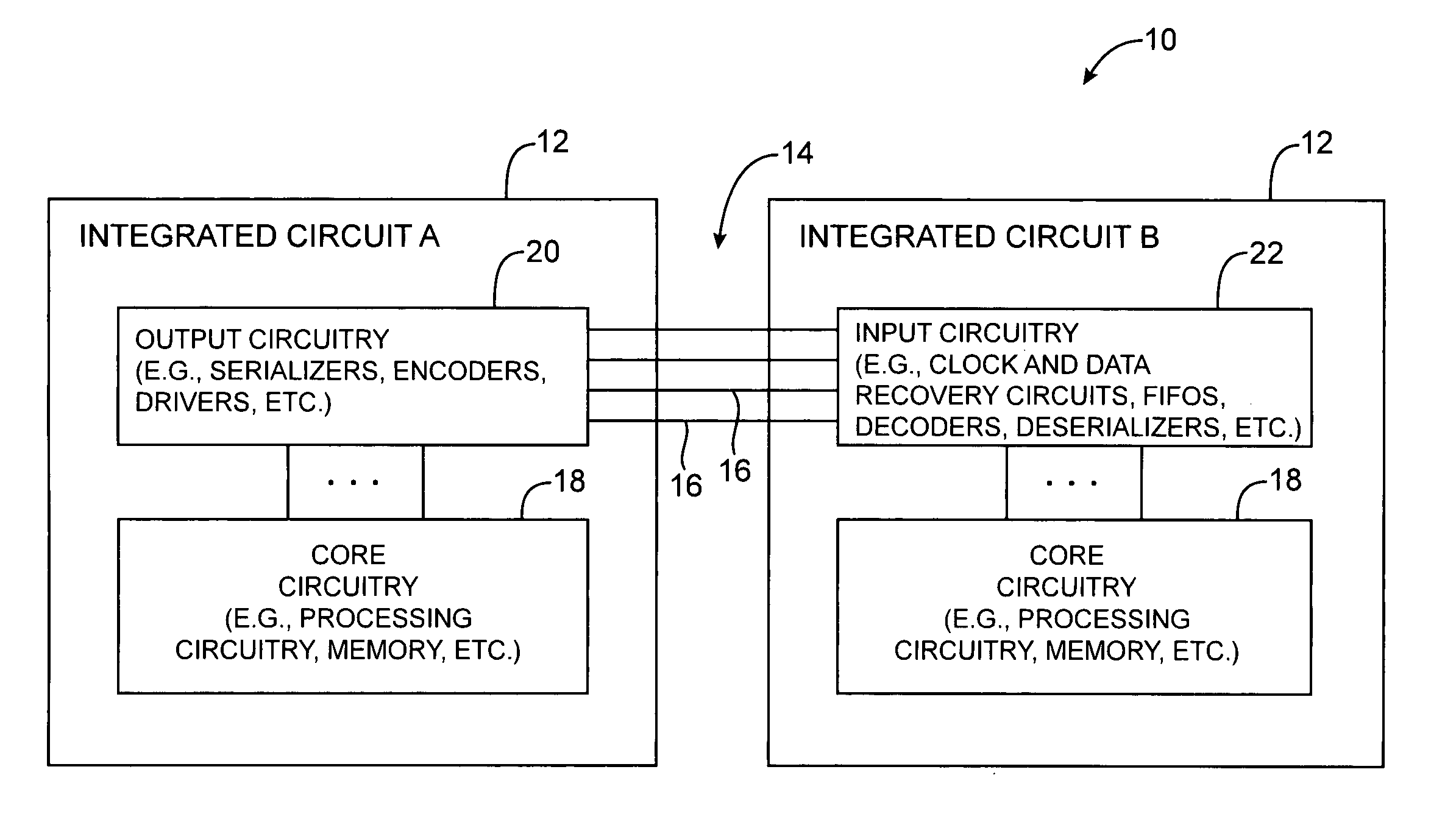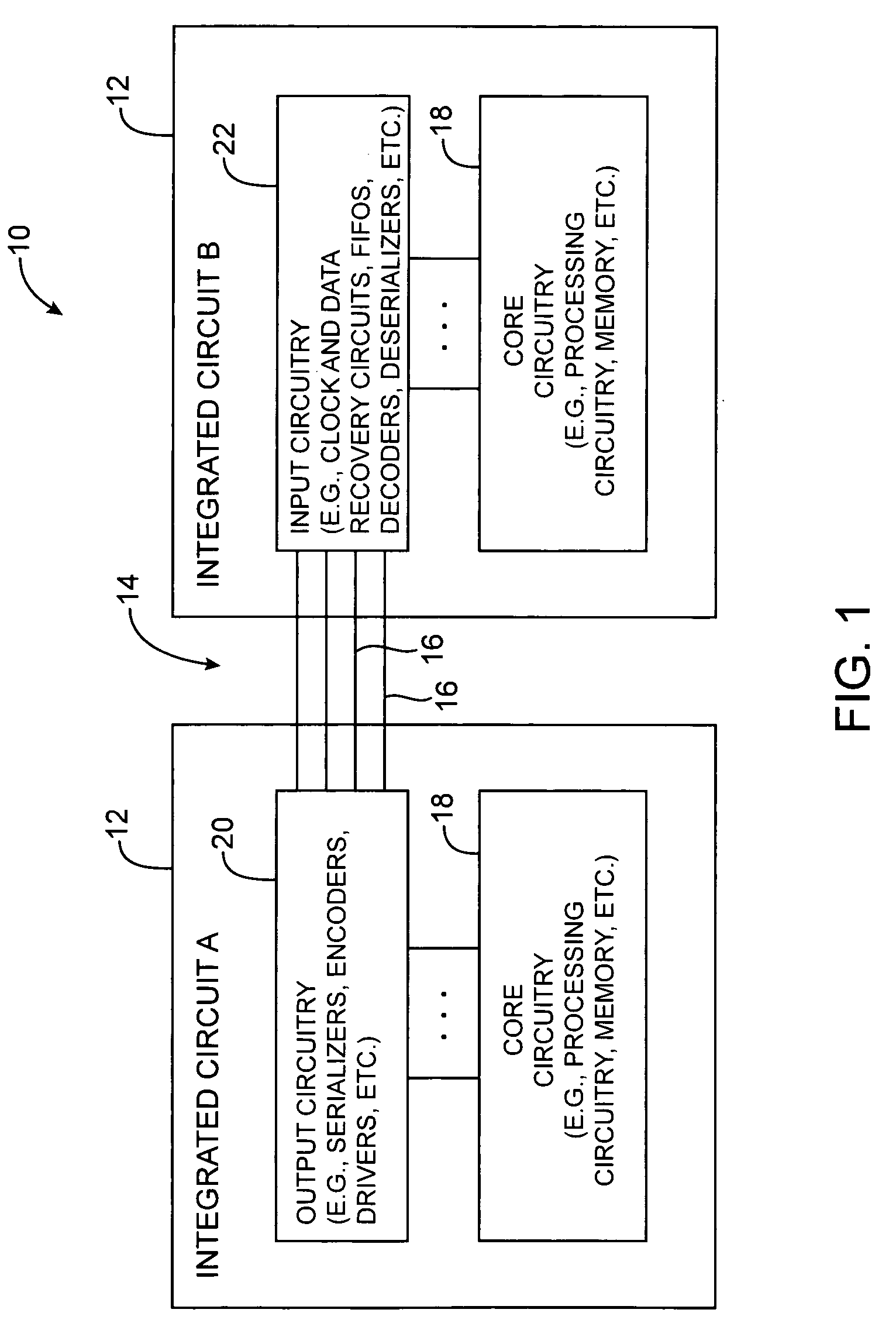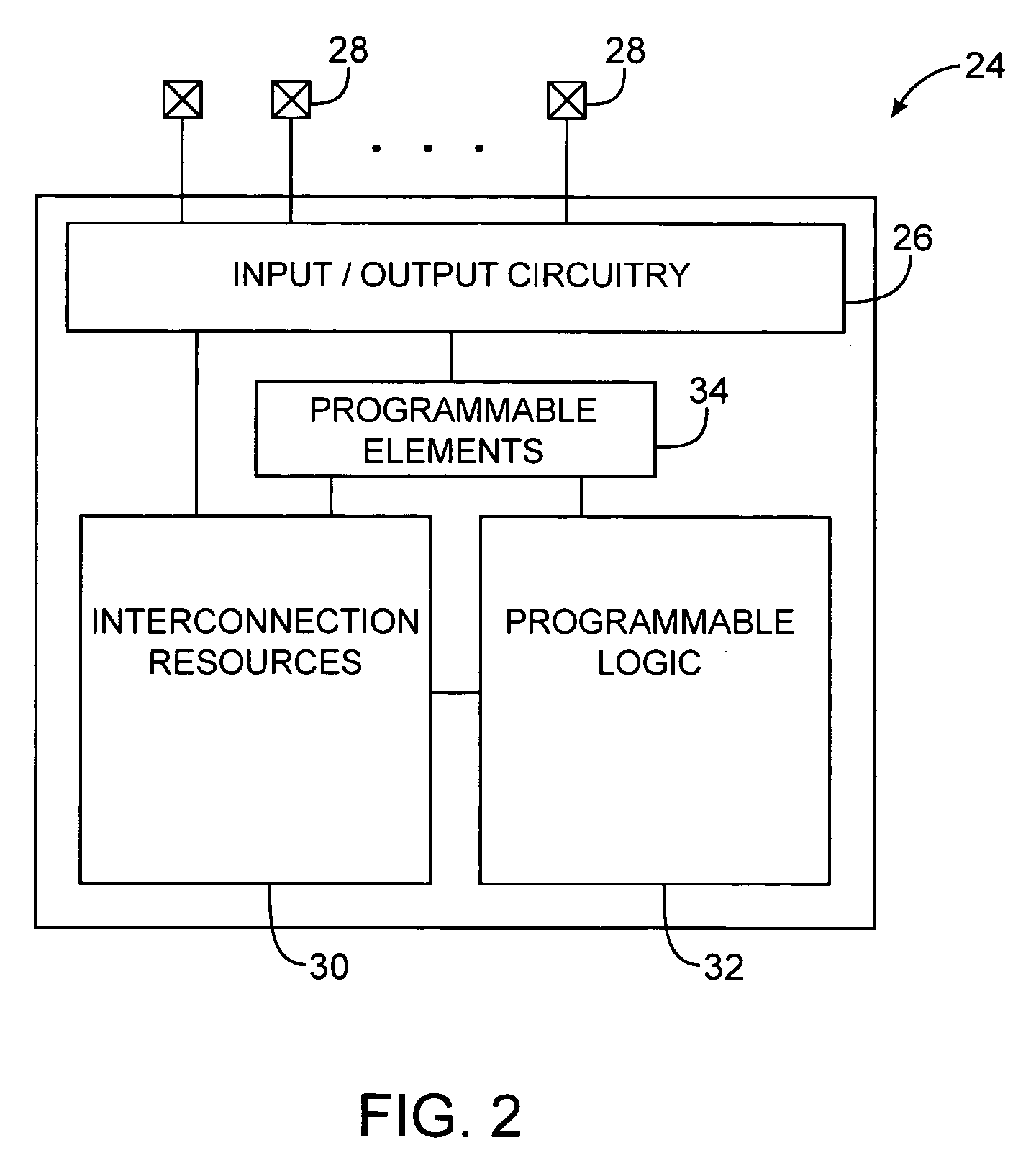Process for producing dried, singulated fibers using steam and heated air
- Summary
- Abstract
- Description
- Claims
- Application Information
AI Technical Summary
Benefits of technology
Problems solved by technology
Method used
Image
Examples
examples
[0062] In the processing of pulp into dried, singulated fibers used in the examples below, several process conditions were evaluated. The effects of variations in the jet dryer inlet and outlet temperatures, feed rate, types of pulp, manifold pressures, and steam pressures at the nozzle were explored in the examples below.
[0063] Unless otherwise noted, the apparatus used for the examples below is as follows: pulp was dried and singulated into fibers using a Fluid Energy Aljet Model 10-34-1005 Thermajet, jet dryer. This dryer has a 25.4 cm (10 in) conduit. No modifications were made to the Thermajet dryer except for the steam injection system described above in conjunction with FIG. 7. Never-dried pulp was fed to the jet dryer as described in conjunction with FIG. 1.
[0064] The feed pulp had an initial consistency ranging from 3% to 4% in the head tank 42. The pulp was dewatered to a consistency ranging from 25% to 40% before it was fed to the flaker 300. Two types of furnish (feed ...
PUM
| Property | Measurement | Unit |
|---|---|---|
| Temperature | aaaaa | aaaaa |
| Temperature | aaaaa | aaaaa |
| Temperature | aaaaa | aaaaa |
Abstract
Description
Claims
Application Information
 Login to View More
Login to View More - R&D
- Intellectual Property
- Life Sciences
- Materials
- Tech Scout
- Unparalleled Data Quality
- Higher Quality Content
- 60% Fewer Hallucinations
Browse by: Latest US Patents, China's latest patents, Technical Efficacy Thesaurus, Application Domain, Technology Topic, Popular Technical Reports.
© 2025 PatSnap. All rights reserved.Legal|Privacy policy|Modern Slavery Act Transparency Statement|Sitemap|About US| Contact US: help@patsnap.com



